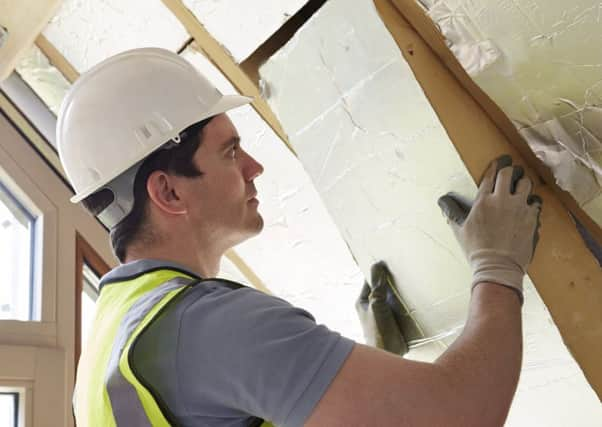Health at risk from inadequate insulation


The study recommended that minimum energy efficiency regulations should be brought in to help householders – especially renters – from having to endure poor conditions which could be detrimental to health.
Householders interviewed by the consumer support group revealed that they have had to resort to extreme measures such as rolling towels up under windows in a bid to keep out draughts. Energy efficiency can be improved through simple measures such as loft insulation or installing a more efficient boiler.
Advertisement
Hide AdAdvertisement
Hide AdRecent figures released by the Scottish Government revealed that 39 per cent of Scottish households say they cannot afford to adequately heat their homes.
The Scottish Government is this month due to invite submissions for a consultation over proposals to introduce minimum efficiency regulations.
The CAS report said that renters were “used to living in properties with poor energy efficiency”.
It said: “All described situations of living in cold or draughty homes and how they had adopted coping mechanisms to live in such properties rather than look for a more efficient property or request improvements from their landlords.”
It added: “The Citizens Advice Service in Scotland approaches the proposal for regulating minimum energy efficiency standards as an opportunity for improving Scotland’s worst condition private sector housing.
“CAS also believes it will contribute to alleviating persistently high rates of fuel poverty in Scotland and other negative consequences resulting from inadequate housing. These are usually the most energy-inefficient homes in Scotland that are often cold and damp, expensive to heat and can lead to preventable health conditions.”
Fraser Stewart, policy officer at CAS, said: “Some of the comments in the report are quite revealing – in what people are doing to try to keep their homes warm. It is time we did something about that, especially when some of the measures that are taken are low-cost and simple.”
However, the report warned that there would need to be appropriate protections brought in to make sure that landlords do not raise rents to cover insulation and other energy efficiency measures.
Advertisement
Hide AdAdvertisement
Hide AdStewart added: “It is something we are concerned about. The measures we are talking about are not high cost, so if a tenant was told their rent was to go up due to a government requirement that energy efficiency measures are installed in their home, we would very strongly suggest the tenant speaks to us at a Citizens Advice Bureau to ask for help.”
The report found that many landlords do not support the introduction of a minimum efficiency standard.
A spokeswoman for the Scottish Government said: “Scotland is outperforming the UK in the delivery of home energy efficiency measures that save householders money, and the introduction of the Energy Efficiency Standard for Social Housing last year is helping enhance our performance for many of the poorest households in Scotland in the social sector.”
She added: “We need to consider what more can be done. We will look closely at CAS’s findings ahead of the forthcoming consultation on proposals for minimum standards of energy efficiency in private sector housing, which will provide an opportunity to gather a wider range of views.”